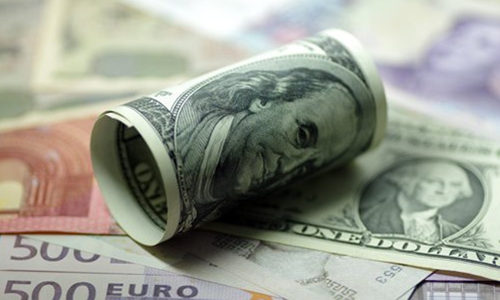HOME >> SOURCE
Excessive liquidity won’t relieve market panic over spreading virus
Source:Global Times Published: 2020/3/16 21:03:40

File photo
If a 50 basis point rate cut is not enough to calm markets, then raise it to 100 basis points. That's probably what the US Federal Reserve has in mind in responding to market volatility caused by fears of the spreading coronavirus and its economic repercussions.
But without the effective containment of the virus spread, simply flooding the financial system with liquidity is at all not comforting. US stock futures hit the "downward limit" on Sunday night, even after the Fed announced it would cut interest rates to near zero and purchase another $700 billion worth of Treasury bonds and mortgage-backed securities in a bid to support the economy.
With another week of market turbulence ahead, it is already disturbing to think the Fed is running out of room to cut its interest rate further, as Fed Chairman Jerome Powell dismissed the possibility of adopting negative rates.
Fundamentally speaking, the current pessimism and panic prevailing in the global markets comes from uncertainties surrounding how deep the hit from the virus may be and whether governments around the world have the ability to contain its spread. Seemingly, governments in the West have wasted the time China provided the world to prepare, and some have even decided to adopt a policy of "total surrender" toward the virus in a shocking display of irresponsibility.
The global spread of the coronavirus has severely rocked the world economy, with travel, trade, logistics, supply chains and consumption sectors all hit hard. What's worse, the West has in general handled the virus passively, meaning countries have take actions only after the situation has deteriorated. Such an approach will certainly lead to a prolonged fight against the pandemic, which will drag the world economy further down.
Some Western countries have basically given up full control of the virus as it is impossible for it to replicate China's model. That means a vaccine has become the only hope to bring the pandemic under control. Since a coronavirus vaccine will take time to develop, the global economy is bound to suffer and plummet during the process.
Foreseeing that scenario, it is no wonder that investors are unable to take solace in global monetary easing by the Fed and central banks elsewhere.
Such developments are particularly frustrating to China, which has brought the coronavirus under control at great cost, and is currently struggling to bring its economy back on track. But the disruption to global supply chains is having a spillover effect so great that the Chinese economy can by no means resist on its own. It is time for China to prepare for a Western drag on its economy.
Posted in: GT VOICE